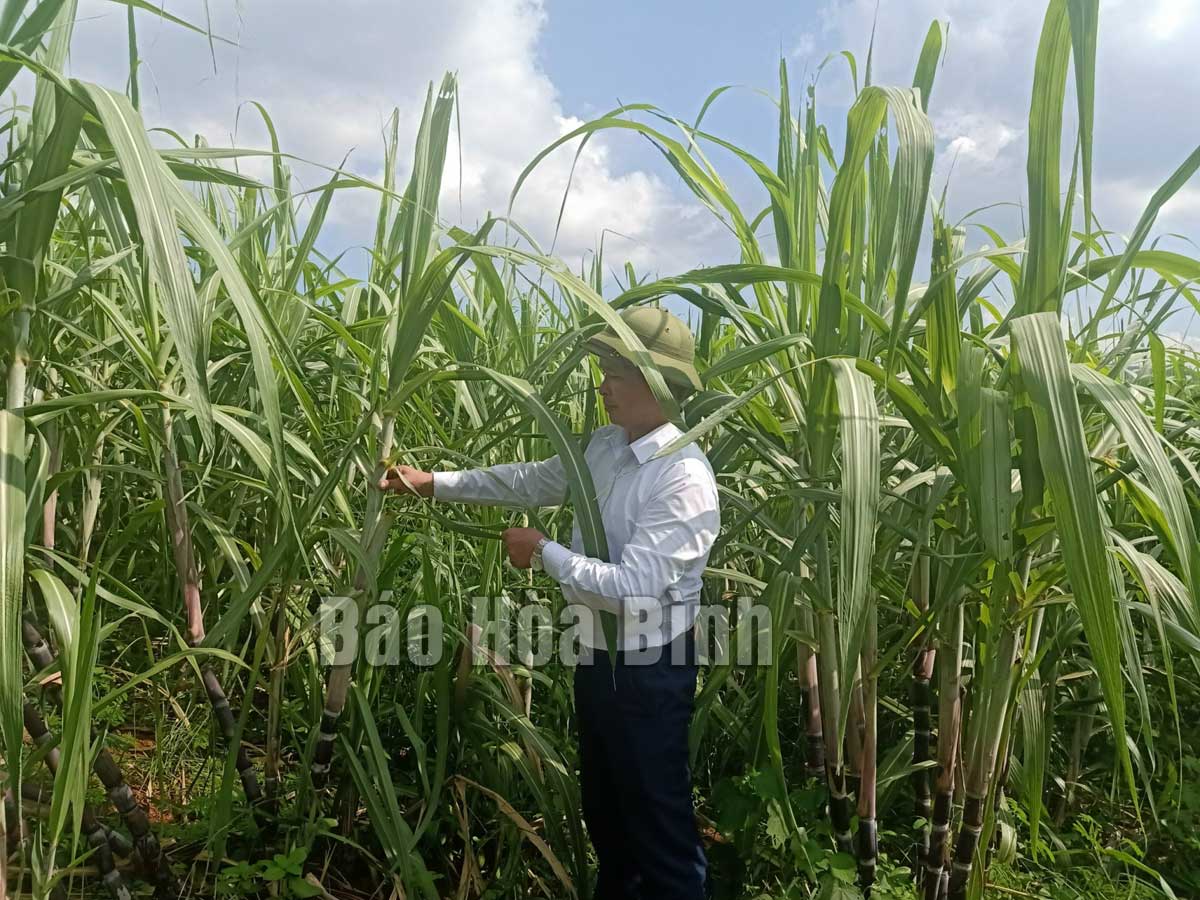
(HBO) - Dung Phong commune is working to improve the lives of local people through creating large fields via land accumulation in Bai Be 2 and Dong Moi villages, and attracting investment from the Quang Ha garment making company into the locality. It is expected that when the company put into operation its factory in the commune, it will create jobs for 100 local workers.
In the economic development plan, Dung Phong commune (Cao Phong) continues to
develop sugarcane cultivation. (Photo)
Dung Phong is mainly an agricultural commune with the main crops being rice,
corn, sugarcane and citrus fruits. During the 2015-2020 term, the commune
actively encouraged local farmers to switch to plants with high economic value.
Up to now, a number of rice cultivation areas have been converted to sugarcane,
and hillside land has been used to grow citrus fruit. Currently, the commune
has an area of 335.7 hectares of sugarcane and 180 hectares of citrus trees.
Local authority reported that economic growth reached 10 percent in which
agriculture accounts for 55 percent; handicrafts account for 25 percent; the
per capita income reached 45 million VND/year and the poverty rate was 5.6
percent. The commune has maintained results it made under the new style rural
area building programme and is building model residential areas and
gardens.
In the 2020-2025 term, the commune's Party Committee aims for a decent and
sustainable economic growth. It will work to accelerate economic restructuring
and labor restructuring, while improving the quality, efficiency and the
competitiveness of the local economy. In order to fulfill this task, the
commune Party Committee is focusing on leading and directing the review and
supplementation of socio-economic development plans in association with the new
style rural development programme. The committee will also direct the
evaluation of the effectiveness of economic models, and put forward investment
policies to expand and develop quality and effective models; creating favorable
conditions to attract investment...
Regarding agriculture and forestry, the commune will focus on
industrialisation and modernisation of agricultural production, and on
developing livestock in the direction of semi-industrial model.
In the economic development roadmap for the period of 2020-2025, the commune's
Party organisation has outlined many breakthrough solutions in economic
development, creating motivation to complete the tasks and successfully achieve
economic development goals, including a 10-percent economic growth rate, per
capita income of 62 million VND a year, and a poverty rate of under five
percent./.
The emulation movement "Hoa Binh joining hands to build new-style rural areas” has been widely spreading, becoming a driving force that motivates the localities to renew rural landscapes and improve the material and spiritual lives of the residents. In this movement, the people play a central role-both as the main implementers and direct beneficiaries of its outcomes.
In response to the global digital revolution, Hoa Binh Newspaper is transforming itself into a modern and multi-platform media hub, blending cutting-edge technology with a restructured newsroom and a new generation of tech-savvy journalists.
Hoa Binh province’s Association of the Elderly recently held a conference to review the project on expanding the inter-generation self-help club model until 2025.
In a move to implement Resolution No. 57-NQ/TW, issued on December 22, 2024 by the Politburo, which targets breakthroughs in science-technology development, innovation, and digital transformation, the Hoa Binh provincial Department of Health has issued a plan to roll out the "Digital Literacy for All” campaign within the local health sector.
An Nghia Commune (Lạc Sơn District) is one of the communes that achieved the tha standard of the national new rural area in 2018. Entering a new development phase, the commune is now trying to meet the criteria for the advanced new rural development. With the strong political will and the public consensus, the commune is gradually overcoming the challenges to reach this goal, aiming for the sustainable development.



